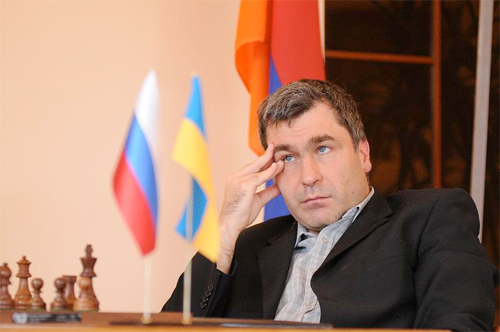 |
| This attractive pile of fruit and vegitables appears to have nothing whatsoever to do with chess. |
- On the “Path to Chess Mastery” blog our host explains his methodology for analysing his own games and how this is helping him to improve his play.
- Over at the “Empirical Rabbit” blog Bright Knight provides readers with the latest news on his tactical development programme and considers his future plans.
- Back at the beginning of August I took part in the British Chess Championships for only the second time in my 18 year career as a player. It was a lot of fun, a fantastic development opportunity and also very hard work! I feel I learned something about the level of intensity required to be successful in tournament play. I posted a range of material about my preparations, lessons learned and (I’m afraid!) the games themselves. Anyone who is interested in this narrative can find them in amongst the August archive of this blog.
- The ever interesting and thought provoking Mark Weeks digs deeper into the contents of a YouTube video he linked to recently, distilling some of its lessons as he goes.
- Seasoned chess blogger, Robert Pearson reviews Andrew Soltis’s book “Studying Chess Made Easy” and concludes that it’s well worth recommending. Prompted by reader feedback Robert then expands further on his review in this second post.
- Robert also points out to us an interesting article and illustrative game on Grand Master Nigel Davies’s “The Chess Improver” blog in which GM Davies gives an insightful view on “unfashionable” chess openings. This one is a must for anyone who plays Philidor’s Defence.
- Anyone looking for a decent chess engine for Playstation 3? If so then GersFan1982 seems to think that the new Fritz 3 package may be the answer to your prayers.
- First up, here is a classic masterpiece by Nigel Short (posted and commented on by ih8sens) which demonstrates the power of the king even in the middle game.
- If you thought that game was interesting then you need to check out this one as Fide Master CharlyAZ continues the “Steel King” theme with a crazy game in the Poisoned Pawn Variation of the Sicilian Defence. CharlyAZ goes on to give several more examples of this phenomena including the Short vs. Timman game given above. An entertaining read! (On a similar theme, one of my favorite games by Alexei Shirov involves White launching an attack on the enemy king whilst his own monarch is perched precariously on d3!)
- If it’s tests and puzzles you’re after then CharlyAZ provides another classic game for our education and enjoyment. This time readers are invited to participate and try to predict the moves played by Vladimir Kramnik against Garry Kasparov. It’s a challenging example of a “positional” sacrifice theme to test yourself with.
- There is another nice tactical problem to solve in this post by mis3u where you’ll have the chance to improve on the play of a Georgian Grandmaster. Double rook endgames are notoriously difficult to handle and this post shows that even GMs can mess up sometimes.
- IM Daniel Rensch houses his own blog on the Chess.com site and in this post he reviews his performance at a recent tournament. There are three interesting games to look at too.
- Jonny at “Smartblog” considers how playing chess can help boost your IQ and considers the intellectual benefits that players can derive from the game
That’s all for this month. See you all in a month’s time on another host site from October the 4th!
General Interest



